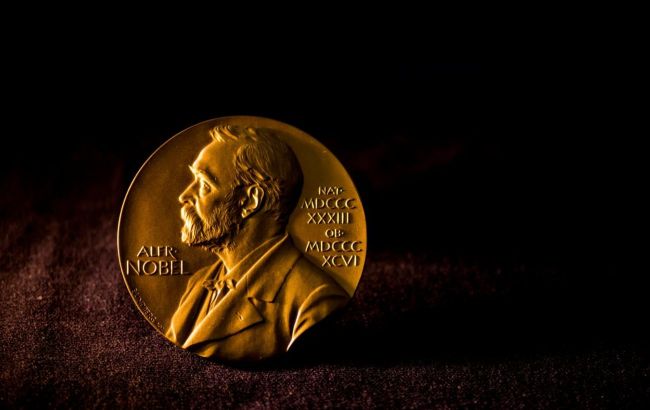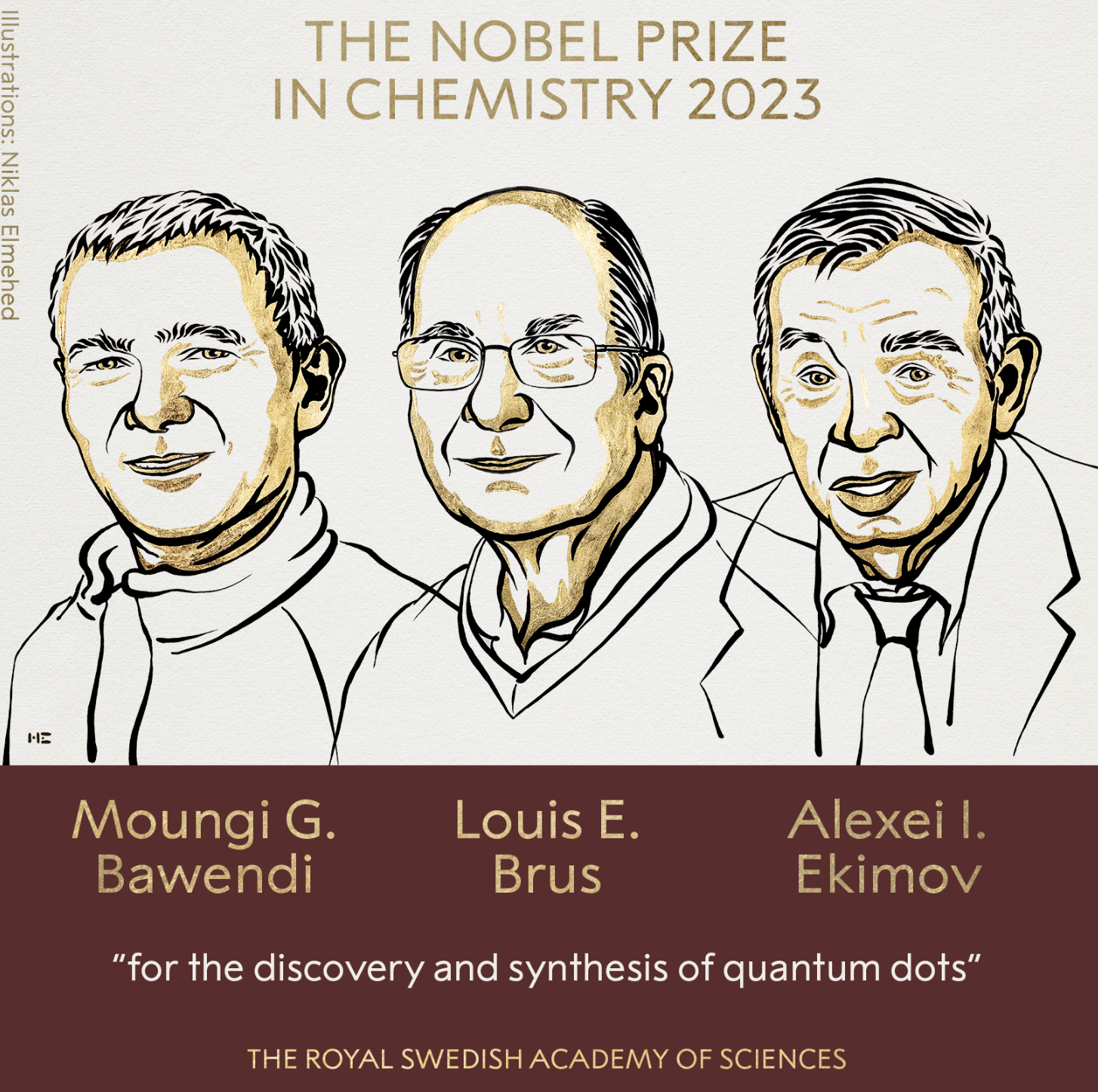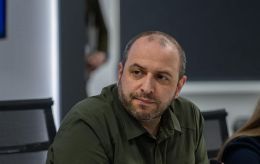Nobel Prize 2023 - Chemistry laureates announced
 Winners of the Nobel Prize-2023 in Chemistry announced (Photo: Getty Images)
Winners of the Nobel Prize-2023 in Chemistry announced (Photo: Getty Images)
The Nobel Committee announced the laureates of the Nobel Prize in Chemistry today, October 4. The recipients are scientists Moungi Bawendi, Louis Brus, and Alexei Ekimov, "the discovery and development of quantum dots," according to the Nobel Foundation's press service.
Nano-particles and quantum dots are used in LED lamps and television screens. They can also be employed in surgical operations to remove cancerous tissues.
Interestingly, a few hours before the announcement of the Nobel laureates in chemistry, the Royal Swedish Academy of Sciences sent a letter naming the prize winners. Reuters journalists speculated that the letter was sent by mistake.
About the scientists' contribution
The scientists were honored for their discovery and development of quantum dots, nanoscale particles so small that their size determines their properties.

These particles possess unique properties and emit light from television screens and LED lamps. They catalyze chemical reactions, and their precise light can illuminate tumor tissue for surgeons.
Researchers have primarily used quantum dots to create colored light. In the future, quantum dots could contribute to developing flexible electronics, miniature sensors, thinner solar panels, and possibly encrypted quantum communication.
Nobel Prize winners in Chemistry: several facts
Chemistry was a crucial aspect of Alfred Nobel's work, and the development of his inventions and the technological processes he used relied on chemical knowledge. Therefore, chemistry became the second field Nobel mentioned in his will.
The first Nobel Prize in Chemistry was awarded in 1901 to Jacobus van 't Hoff from the Netherlands "in recognition of the extraordinary services he has rendered by the discovery of the laws of chemical dynamics and osmotic pressure in solutions."
Last year, the Nobel Prize in chemistry was awarded to Carolyn R. Bertozzi, Morten Meldal, and Barry Sharpless. They introduced and applied the so-called "click chemistry," where molecular building blocks are rapidly and efficiently joined together.
Interestingly, one of the scientists, Barry Sharpless, became a laureate of the prestigious award for the second time. Throughout his life, he focused on organic chemistry, studying the possibility of inventing chemical reactions that could take place in water, in the presence of oxygen, quickly and with high yield.
Nobel Prize winners in Physiology or Medicine and Physics announced
The Nobel Week 2023 began in Norway and Sweden on Monday, during which the laureates of this prestigious award for 2023 will be notified.
On Monday, the Nobel Prize in Physiology or Medicine was awarded to scientists Katalin Karikó and Drew Weissman for discoveries that allowed the development of coronavirus vaccines (Moderna and BioNTech/Pfizer).
Also, on October 4, the Nobel laureates in Physics for 2023 were Pierre Agostini, Ferenc Krausz, and Anne L'Huillier. They were recognized for "experimental methods generating attosecond pulses of light to investigate the dynamics of electrons in matter."
The Nobel Week 2023 continues, and on Thursday, the laureates of the Literature Prize will be announced, followed by the Peace Prize on Friday. The Nobel laureate in Economic Sciences will also be announced the following Monday (October 9).

